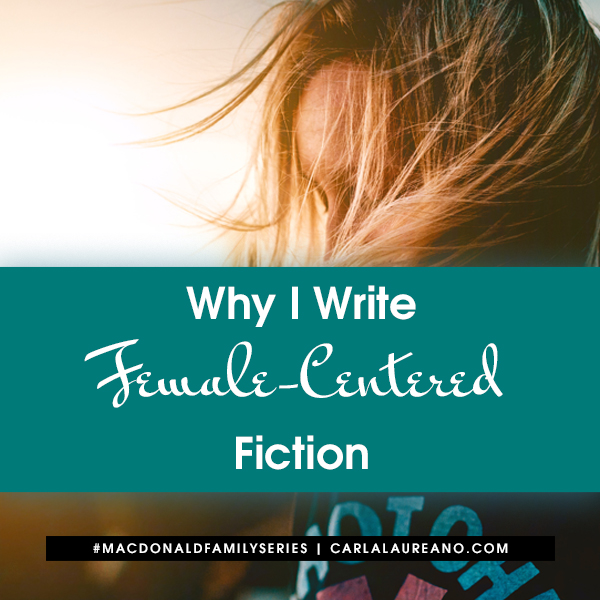Why I Write Female-Centered Fiction

When I started out to write my first romance novel, I wasn’t even sure I was in love with the romance genre (pardon the pun). I knew that I wanted to write about women who fell in love, but I wanted to be able to see myself in the lead character, something that had been somewhat sparse up until this point. I was a city girl who had had a high-powered job with lots of responsibility. I didn’t live in a small town, I didn’t have a job that put me in close proximity to a cast of quirky characters, and I didn’t have close family ties nearby that I could rely upon. As much as I enjoyed the sweet, small-town romances, I saw next to nothing of my life in them.
With Five Days in Skye, I sought to remedy that by creating Andrea, a New York City-based hospitality consultant who had to hustle to make ends meet, who in many ways felt alone in the world, and who did not, by any stretch of the imagination, fit the small-town heroine model.
I took that one huge step further with Grace Brennan in London Tides, the damaged, secretive photojournalist with a sense of global purpose—and crippling PTSD to show for it.
Additionally, I realized I was getting tired of the romances that focused entirely on the hero—how sexy, rich, or good in bed he was (that last one is clearly not a Christian romance trope!) Sure, those types of books can be fun beach reads, and I have nothing against the writers who create them, but it wasn’t how I wanted to spend my creative time. I wanted the focus to be on the female character and what she learned through the process of falling in love.
The longer I wrote in the genre, the more I became interested in what falling in love revealed about my characters. Being forced to be vulnerable in a relationship shed interesting light on the secrets, hurts, and aspirations of my female characters, and while I delight in giving them their perfect match, I enjoy seeing their journey to wholeness and strength even more. I’ve heard from readers that they saw their own lives mirrored in my characters, or they’ve been inspired to make a much-needed change to their own path.
Now, when I write a new female romantic lead, I’m making one (or all) of these points:
- God’s plan for your life is about more than your romantic status. To some in the church, a woman’s life is about biding the time until she finds her forever mate and settles down as a wife and mother. But God’s plan for us as women is so much wider than that, and it may or may not involve marriage. God has planted talents, hopes, and aspirations in us that encompass more than our relationships, and He wants us to be open and willing to use them for His glory, regardless of our marital status. Therefore, my characters always have to come to a realization of what God’s real pattern is for their lives before they commit to a man… and in every case that man supports that pattern rather than expects to supplant it. I want readers to have the sense that even if the romance didn’t work out, my character would be okay, because she’s discovered who she is in Christ.
- God’s plan for your life—and your entire personality–doesn’t suddenly change with your marital status. Every time I see a book where a woman who loves her job falls for a man and then happily gives up everything she’s worked for, I cringe. It’s not that I don’t understand or support changing direction based on life changes—after all, I did the same thing myself. I gave up a successful marketing career to become a stay-at-home mom. Of course, when my older son was an infant, my husband quit work to become a stay-at-home dad for five months. We made decisions as a couple based on what was best for our family at the time, not simply on what was expected of us. You’ll find that in my books, compromise is often required to make a relationship work, but as in most healthy relationships, it’s just not one person who is required to bend. If one person in the relationship, male or female, is having to sacrifice everything that makes them unique for the sake of the relationship, it’s not a healthy relationship.
- There’s not simply one model for Christian women. Going back to #1, women do not simply have to be wives and mothers. They’re noble aspirations (and they’ve definitely been the most challenging and fulfilling roles in my own life) but they’re not the only options. My characters so far have been: 1) a hospitality consultant who desperately wants kids, 2) a war photographer who never wants children, 3) a stay-at-home mom whose life revolves around her children (I’m looking at you, Serena MacDonald!), 4) a top chef who has never even had a boyfriend and 5) a pastry chef who has made numerous mistakes with men because she just wants to find her fairy-tale prince. My characters have a wide spectrum of aspirations and outlooks, and they’re all equally valid. Their paths are as individual as they are, and as disparate as my readers’ purposes.
These are topics that I never get tired of writing about, which means many more books to come! If you missed them the first time around, don’t forget to check out the new editions of Five Days in Skye and London Tides, available tomorrow in paperback and e-book wherever books are sold.
Tags: female-centered fiction, Five Days in Skye, London Tides, women's fiction

Lelia (Lucy) Reynolds says:
Thank you for sharing your heart. Blessings
On July 8, 2019 at 1:38 pm